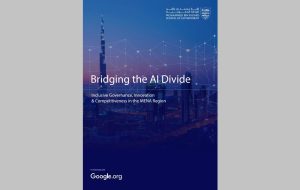The United Arab Emirates University (UAEU) is reinforcing its leadership in artificial intelligence (AI) through a comprehensive institutional agenda aimed at integrating AI technologies across education, research, and operational processes. This strategic framework supports national innovation and advances the country’s digital transformation objectives.
His Excellency Dr Ahmed Ali Al Raisi, Chancellor of UAEU, emphasised that AI lies at the heart of the University’s future vision. He noted that the institution is working to build a holistic ecosystem encompassing education, research, and community engagement, with the goal of preparing a generation of national talent capable of leading the UAE’s digital future.
Dr Al Raisi explained that the agenda reflects the University’s commitment to embedding AI systematically across all aspects of campus life. This includes the introduction of institutional policies and the appointment of a Chief AI Officer to oversee the implementation of high-impact initiatives in the field.
The AI Agenda 2025–2031 sets out an ambitious roadmap to enhance the University’s research and teaching capabilities in this critical discipline. It seeks to develop multidisciplinary solutions to societal challenges and expand UAEU’s academic influence both locally and internationally.
Over the past five years, UAEU researchers have published more than 1,000 peer-reviewed AI-related studies in the Scopus database, covering diverse fields such as health, engineering, environment, education, and social sciences.
Ongoing research projects include evaluating neural network performance in monitoring concrete structures, developing predictive models for hospital stays in lung cancer patients, and creating systems to measure student attention in classrooms. Other projects focus on classifying autism behaviours through explainable AI, designing smart tools to address childhood obesity, predicting newborn weights, and analysing data for flood risk assessment.
In environmental sustainability, UAEU leads projects on rainfall prediction using machine learning, hybrid models for forecasting ozone concentration, and groundwater monitoring using combined statistical analysis and neural networks—demonstrating the University’s commitment to producing research that strengthens the resilience and sustainability of natural resources.
The University is also expanding its global research footprint through strategic partnerships with leading international institutions, including the University of Malaya, Western Sydney University, Texas A&M University, the University of Arizona, and Sunway University. These collaborations aim to enhance research quality and accelerate innovation in AI applications.
On the academic front, UAEU has announced that AI will become a graduation requirement for all students starting in the Autumn 2025/2026 semester, ensuring that national graduates are fully prepared for the demands of the digital economy.
The University offers programmes such as the Bachelor of Science in Data Science and Artificial Intelligence, the Bachelor of Science in Statistics and Data Analytics, and a dedicated AI minor, alongside a suite of new courses developed by faculty members.
Key offerings include Introduction to Artificial Intelligence, providing a comprehensive overview of AI history, applications, and societal impacts, open to students of all disciplines. The course AI Fundamentals and Applications focuses on core AI concepts and technologies—such as robotics, computer vision, and speech processing—with practical applications in smart cities, healthcare, and cybersecurity.
For specialised learning, UAEU offers AI in Engineering, covering predictive maintenance and optimisation of industrial systems, and AI in Medicine, which explores AI-assisted diagnostics, drug development, personalised medicine, and the ethical considerations of clinical AI applications.














